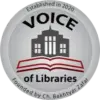Zoteroزوٹیرو
Zotero is a free, open-source research tool that helps users collect, organize, and cite research materials. It is available as a standalone application and as a browser extension, and it can be used to manage a variety of research materials, including documents, articles, and web pages.
With Zotero, users can create a personal library of research materials and organize them into collections. Zotero also includes tools for annotating and highlighting documents, and it can automatically generate citations in a variety of styles.
Zotero is widely used by researchers, students, and professionals in a variety of fields, and it is particularly popular in the humanities and social sciences. It is designed to be easy to use and is available for Windows, Mac, and Linux.
Zotero was developed by the Center for History and New Media at George Mason University and was first released in 2006. It has since become one of the most popular research tools for academics and students, with millions of users around the world.
Zotero is available in two main versions: a standalone application and a browser extension. The standalone version of Zotero is a desktop application that can be installed on a computer and used to manage research materials locally. The browser extension version of Zotero integrates with web browsers and allows users to save and organize research materials from the web.
In terms of types of research materials that can be managed with Zotero, the tool is designed to handle a wide range of formats, including documents, articles, web pages, images, and audio and video files. Users can organize their research materials into collections and use Zotero’s annotation and citation tools to help manage their research projects.
Overall, Zotero is a versatile research tool that is widely used by researchers, students, and professionals to collect, organize, and cite research materials.
